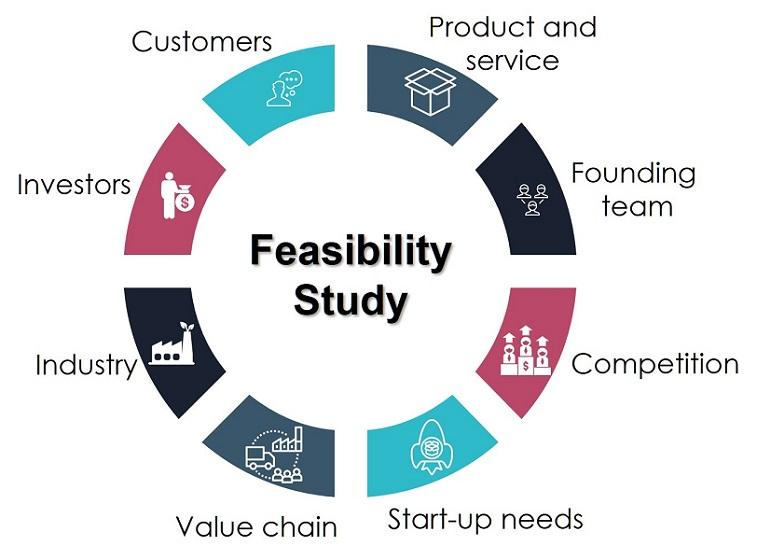Feasibility Studies in Kenya
Professional Feasibility Studies for Real Estate and Development Projects
Every successful development begins with a solid foundation — and that foundation is a feasibility study.
Before investing in any project, whether residential, commercial, or mixed-use, developers and investors must understand the project’s viability, potential risks, and profitability.
A feasibility study provides the analytical insight needed to determine if a project should proceed, be modified, or discontinued. In Kenya’s fast-evolving property and infrastructure market, this process is essential to guide sound investment decisions and ensure long-term project success.
Our feasibility study services combine market intelligence, technical evaluation, and financial modelling to give investors and developers a clear roadmap from concept to completion.
1. Market Feasibility
Market feasibility focuses on assessing whether there is real demand for the proposed project in its specific location. Through extensive research, market analysis, and competitor benchmarking, we determine the absorption rate, pricing trends, and buyer or tenant profiles.
Key Aspects Covered:
-
Market Demand and Supply Analysis: Evaluate current and projected demand within the target area, identifying market gaps and opportunities.
-
Location and Competitor Analysis: Compare the proposed site with similar developments to determine competitive advantages.
-
Target Market Segmentation: Identify potential buyers or tenants based on demographics, income levels, and preferences.
-
Price Positioning and Forecasting: Recommend appropriate pricing strategies based on current market trends and forecasts.
-
Investment Viability: Assess whether market conditions align with the investor’s goals and expected returns.
Market feasibility ensures your project aligns with Kenya’s real estate market trends, avoiding oversupply or underperformance and maximizing investment success.
2. Technical Feasibility
Technical feasibility examines whether the project can be physically and operationally implemented within the available resources, infrastructure, and regulatory framework. It evaluates the site’s suitability, design parameters, and construction practicality to ensure smooth execution.
Key Aspects Covered:
-
Site Suitability and Accessibility: Assess land topography, access roads, soil conditions, and proximity to essential utilities.
-
Infrastructure Availability: Evaluate the availability of power, water, drainage, and telecommunications networks.
-
Design and Structural Considerations: Recommend cost-effective and sustainable design solutions aligned with the site’s potential.
-
Project Implementation Timeline: Provide a realistic construction schedule with resource allocation and cost efficiency.
-
Risk and Contingency Planning: Identify potential construction and logistical challenges with mitigation strategies.
A thorough technical analysis ensures the project’s design, materials, and construction process are viable and compliant with Kenya’s building and safety standards.

3. Financial Feasibility
Financial feasibility determines whether the project will be profitable and sustainable over its life cycle. It evaluates the capital requirements, cost structure, projected revenues, and expected returns, helping investors understand the financial implications before committing funds.
Key Aspects Covered:
-
Development Cost Estimation: Detailed breakdown of land acquisition, construction, professional, and regulatory costs.
-
Revenue and Expense Forecasts: Projection of sales prices, rental income, and operational costs based on market data.
-
Cash Flow and ROI Analysis: Determine potential returns, net present value (NPV), and internal rate of return (IRR).
-
Sensitivity and Risk Assessment: Analyze how changes in pricing, costs, or demand impact profitability.
-
Financing Structure: Advise on equity, debt, or joint venture options suited for the project type and scale.
A well-prepared financial feasibility report enables investors, banks, and developers to evaluate the project’s profitability, ensuring financial security and long-term growth.
4. Legal and Regulatory Feasibility
Legal feasibility assesses the project’s compliance with Kenyan laws, land regulations, and development control frameworks. It ensures that the property has a clean title, all permits are in place, and the proposed use aligns with the county’s zoning requirements.
Key Aspects Covered:
-
Title and Ownership Verification: Confirm the authenticity of title documents and ownership records.
-
Zoning and Land Use Compliance: Verify that the proposed development aligns with the zoning regulations of the area.
-
Planning and Building Approvals: Ensure all statutory approvals are secured from relevant authorities.
-
Environmental Licensing: Review requirements for environmental impact assessments (EIA) and NEMA compliance.
-
Legal Due Diligence: Identify potential disputes, encumbrances, or restrictions affecting the land.
A legal feasibility assessment prevents regulatory delays and ownership disputes, ensuring a smooth approval process for the development.
5. Environmental and Social Feasibility
Environmental feasibility ensures that the project complies with Kenya’s environmental protection and sustainability standards, while also assessing its social impact on the surrounding community.
Key Aspects Covered:
-
Environmental Impact Assessment (EIA): Conduct detailed studies to evaluate and mitigate environmental risks.
-
Sustainability and Green Design: Incorporate eco-friendly materials, renewable energy, and water conservation measures.
-
Waste and Pollution Management: Plan effective waste disposal and pollution control systems.
-
Community Engagement: Evaluate the project’s social impact and ensure alignment with community needs.
-
Compliance with NEMA and Local Authorities: Ensure adherence to Kenya’s environmental regulations and county by-laws.
An environmental and social feasibility study enhances the sustainability and acceptance of a project, making it both eco-friendly and socially responsible.
6. Why Feasibility Studies Are Important
A detailed feasibility study serves as the blueprint for successful project development. It minimizes uncertainty, reduces investment risks, and provides investors with clear, evidence-based decision-making tools.
Key Benefits:
-
Identify and mitigate potential risks before implementation.
-
Evaluate the market, technical, and financial viability of a project.
-
Strengthen investor confidence and secure funding from lenders.
-
Ensure compliance with legal and environmental requirements.
-
Optimize project design for maximum efficiency and profitability.
Feasibility studies bridge the gap between concept and execution, providing the insight needed to turn vision into a viable, profitable development.
7. Deliverables
Upon completion, clients receive a comprehensive Feasibility Study Report that includes:
-
Executive summary of findings and recommendations
-
Market, financial, technical, and legal analyses
-
Projected cash flow and ROI models
-
SWOT and risk assessments
-
Implementation roadmap
Each report is tailored to the specific project, ensuring relevance, clarity, and practical application.
8. Get Professional Feasibility Study Services in Kenya
Whether you’re planning a housing estate, shopping mall, hotel, industrial park, or mixed-use development, professional feasibility studies provide the clarity and confidence needed to move forward.
Our experts combine local market knowledge, advanced analytics, and technical expertise to deliver actionable insights for developers, investors, and institutions across Kenya.
Make informed investment decisions — start your project with a comprehensive feasibility study today.

FAQs on Feasibility Studies in Kenya
1. What is a feasibility study in real estate?
A feasibility study in real estate is a detailed assessment that evaluates whether a property development project is viable. It analyzes market demand, costs, revenues, risks, and legal requirements before investment decisions are made.
2. Why is a feasibility study important in Kenya?
In Kenya’s dynamic property market, a feasibility study helps investors avoid losses by identifying risks, confirming project profitability, and ensuring compliance with planning, zoning, and environmental regulations.
3. What are the main types of feasibility studies?
The main types include market feasibility, technical feasibility, financial feasibility, legal and regulatory feasibility, and environmental and social feasibility. Together, they provide a 360-degree evaluation of the project.
4. Who needs a feasibility study?
Developers, property investors, financial institutions, government agencies, and real estate consultants all require feasibility studies before undertaking large-scale or high-value projects.
5. How long does a feasibility study take in Kenya?
Depending on project complexity, a feasibility study may take between 2 to 8 weeks. Larger developments such as hotels or mixed-use estates may require more time for detailed market and technical analysis.
6. What is included in a real estate feasibility report?
A feasibility report includes market research, competitor analysis, financial projections, technical design assessment, risk analysis, and legal compliance verification.
7. How much does a feasibility study cost in Kenya?
The cost varies depending on project size and scope but typically ranges from Ksh 100,000 to Ksh 500,000 for standard developments. Complex or large-scale projects may attract higher fees.
8. Can a feasibility study guarantee project success?
While a feasibility study cannot guarantee success, it significantly improves the likelihood of achieving profitable outcomes by providing data-driven insights and risk mitigation strategies.
9. What is the first step in conducting a feasibility study?
The process starts with data collection — gathering project details, site information, and investment objectives to guide subsequent technical and financial evaluations.
10. What is market feasibility?
Market feasibility assesses whether there is real demand for the proposed project. It studies the target market, competition, location, and pricing to determine if the development will succeed commercially.
11. What is technical feasibility?
Technical feasibility evaluates whether the project can be physically and operationally implemented, considering factors such as infrastructure, design, topography, and available technology.
12. What is financial feasibility?
Financial feasibility determines the project’s profitability. It analyzes development costs, projected income, financing options, and expected returns (ROI, IRR, and NPV).
13. What is legal feasibility?
Legal feasibility ensures the project complies with Kenyan laws, land regulations, and zoning rules. It verifies title deeds, ownership documents, and relevant building approvals.
14. What is environmental feasibility?
Environmental feasibility assesses the project’s potential environmental and social impact, ensuring compliance with the National Environment Management Authority (NEMA) and sustainability standards.
15. Who conducts feasibility studies in Kenya?
Feasibility studies are conducted by registered property valuers, real estate consultants, urban planners, financial analysts, and environmental experts specializing in development advisory.
16. Can I do a feasibility study for a small project?
Yes. Even small projects such as residential developments, holiday homes, or apartments benefit from feasibility studies, helping you align your investment with market realities.
17. What is the difference between a feasibility study and a valuation?
A valuation estimates a property’s current market value, while a feasibility study analyzes whether a proposed project will be viable and profitable based on multiple market and technical factors.
18. How does a feasibility study help investors?
It helps investors make informed decisions, reduces uncertainty, attracts financing, and ensures the project aligns with market needs and investment objectives.
19. Is a feasibility study mandatory in Kenya?
While not legally mandatory, it is highly recommended for all property developments. Financial institutions often require a feasibility report before approving project financing.
20. Can a feasibility study be updated after completion?
Yes. Feasibility studies can and should be updated if there are major changes in market conditions, construction costs, or government regulations affecting the project.
21. What documents are required to start a feasibility study?
You’ll need the title deed, survey map, project concept drawings, and proposed budget estimates, along with details of the intended use of the property.
22. How do feasibility studies reduce project risks?
They identify potential pitfalls early, including regulatory issues, cost overruns, or weak demand, allowing investors to make adjustments before committing capital.
23. Can banks use feasibility studies for loan approval?
Yes. Banks and mortgage institutions often rely on feasibility studies to assess the viability and repayment potential of development loans.
24. What happens if a project is found not feasible?
If results indicate low viability, investors can revise project design, adjust scale, change location, or abandon the plan — saving significant time and money.
25. What tools are used in feasibility studies?
Experts use data analytics tools, financial modeling software, GIS mapping, and market surveys to ensure accurate and reliable findings.
26. What are common challenges in conducting feasibility studies in Kenya?
Challenges include limited access to accurate market data, delayed approvals, and unpredictable land costs, all of which require professional expertise to navigate.
27. What is a sensitivity analysis in a feasibility study?
Sensitivity analysis tests how changes in key factors such as costs, prices, or occupancy rates affect project profitability — helping investors understand possible risks.
28. Do feasibility studies cover environmental and social impact?
Yes. Comprehensive feasibility studies in Kenya include environmental and social impact assessments to ensure sustainability and regulatory compliance.
29. When should a feasibility study be conducted?
A feasibility study should be done before purchasing land or beginning construction, ideally during the project planning or concept development phase.
30. How can I get a professional feasibility study in Kenya?
You can engage qualified real estate consultants, valuers, and development advisors who specialize in feasibility studies for residential, commercial, and industrial projects across Kenya.




Join The Discussion